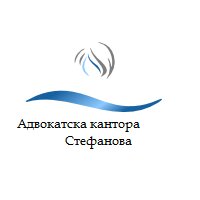Best Whistleblower & Qui Tam Lawyers in Vratsa
Share your needs with us, get contacted by law firms.
Free. Takes 2 min.
List of the best lawyers in Vratsa, Bulgaria
About Whistleblower & Qui Tam Law in Vratsa, Bulgaria
Whistleblower and Qui Tam laws are designed to protect individuals who report or expose unlawful, unethical, or fraudulent activities within organizations. In Vratsa, Bulgaria, these legal protections have gained heightened importance due to both national anti-corruption efforts and broader European Union directives. Whistleblowers play a crucial role in exposing corruption, misuse of public funds, breaches of EU law, workplace safety issues, and more.
While the legal framework around whistleblowing is developing, there are specific statutes and mechanisms that support and protect individuals who come forward with important information. Qui Tam laws, though more prevalent in some other jurisdictions, grant individuals the right to file lawsuits on behalf of the government regarding fraud against public programs. In Bulgaria, related mechanisms exist but differ in scope and application.
Why You May Need a Lawyer
Getting legal help in whistleblower and Qui Tam situations is highly advisable for several reasons:
- Understanding if your concerns meet the legal criteria for whistleblowing protection
- Guidance on how to properly report wrongdoing to avoid legal or professional repercussions
- Protection against retaliation from employers or colleagues
- Assistance with gathering, preserving, and presenting evidence
- Representation during investigations, disciplinary proceedings, or in court
- Advice on potential compensation or remedies under Bulgarian law
- Support with confidentiality and anonymity concerns
- Interpretation of rapidly changing legislation and procedures
Local Laws Overview
In Vratsa and across Bulgaria, key aspects of whistleblower laws are influenced by both national laws and the implementation of EU Directive 2019-1937 on the protection of persons who report breaches of Union law (the Whistleblower Protection Directive).
- Bulgaria has transposed the EU directive into its national legislation, introducing clear obligations for employers to set up internal reporting mechanisms for organizations with 50 or more employees.
- Whistleblowers are protected when reporting breaches related to public procurement, financial services, product safety, environmental protection, public health, consumer protection, and data privacy, among others.
- Protections extend to employees, but also to contractors, volunteers, shareholders, and job applicants, under certain conditions.
- Retaliation against whistleblowers, such as dismissal, demotion, intimidation, or harm to reputation, is expressly forbidden by law.
- There are outlined procedures for internal and external reporting, including to designated state bodies.
- Qui Tam provisions, per se, do not have a direct counterpart in Bulgarian law. However, private individuals can report and assist in investigations of fraud against state programs, potentially leading to rewards or protections.
Navigating these laws and understanding statutory timelines, reporting channels, and evidentiary requirements often necessitate professional legal guidance.
Frequently Asked Questions
What is a whistleblower?
A whistleblower is an individual who reports or exposes illegal, unethical, or improper conduct within an organization, often related to workplace safety, corruption, or misuse of public funds.
Am I protected by law if I blow the whistle in Vratsa, Bulgaria?
Yes, Bulgarian law provides protection to individuals who lawfully report certain types of wrongdoing, especially in contexts defined by the EU Whistleblower Directive.
What types of wrongdoing can I report?
You can report violations related to public procurement, financial services, product safety, environmental breaches, public health, insider trading, data privacy, and other breaches covered under national and EU law.
Can I report something anonymously?
Some reporting mechanisms allow for anonymous whistleblowing, but the level of protection or follow-up may vary. Speaking with a lawyer can help you understand the implications.
What should I do first if I become aware of wrongdoing?
Gather as much information and evidence as possible, do not share details with unauthorized persons, and consider contacting a legal professional before making a report.
Who can I report to?
You can report internally to your employer’s established whistleblowing channel (if applicable), or externally to competent public authorities such as the Commission for Personal Data Protection or the Public Prosecutor’s Office.
What risks do whistleblowers face?
Whistleblowers may face retaliation such as dismissal, demotion, harassment, or reputational harm. However, such actions are prohibited by law and can result in legal consequences for the perpetrators.
What compensation or remedies are available to whistleblowers?
Compensation may include reinstatement, back pay, damages for harm suffered, or other remedies ordered by a court. Legal advice is essential for securing these remedies.
Do I need proof before I make a report?
While you don’t need a complete case, having credible evidence strengthens your position and increases the chances of effective action and protection.
Can I get legal aid for whistleblower cases?
Depending on your financial situation and the specifics of your case, legal aid may be available. Consulting with a local lawyer in Vratsa can clarify your eligibility.
Additional Resources
If you are seeking guidance or need to make a report, the following resources can provide assistance:
- Commission for Personal Data Protection (responsible for some external reporting and monitoring compliance)
- Public Prosecutor’s Office
- Bulgarian Helsinki Committee (for human rights and advocacy)
- Local Vratsa legal aid centers
- Ombudsman of Bulgaria (for protection of citizens’ rights)
- Professional associations or trade unions in your sector
Next Steps
If you need legal assistance with a whistleblower or Qui Tam concern in Vratsa, Bulgaria, consider the following steps:
- Consult with a qualified lawyer specialized in employment or anti-corruption law
- Document your concerns and gather any available evidence securely
- Understand your employer’s internal whistleblowing policy, if applicable
- Carefully consider whether to report internally or externally based on your circumstances
- Inquire about your right to legal aid if needed
- Act promptly to ensure you stay within any legal time limits for reporting
Taking professional legal advice early can ensure your rights are protected and increase the effectiveness of your disclosures.
Lawzana helps you find the best lawyers and law firms in Vratsa through a curated and pre-screened list of qualified legal professionals. Our platform offers rankings and detailed profiles of attorneys and law firms, allowing you to compare based on practice areas, including Whistleblower & Qui Tam, experience, and client feedback.
Each profile includes a description of the firm's areas of practice, client reviews, team members and partners, year of establishment, spoken languages, office locations, contact information, social media presence, and any published articles or resources. Most firms on our platform speak English and are experienced in both local and international legal matters.
Get a quote from top-rated law firms in Vratsa, Bulgaria — quickly, securely, and without unnecessary hassle.
Disclaimer:
The information provided on this page is for general informational purposes only and does not constitute legal advice. While we strive to ensure the accuracy and relevance of the content, legal information may change over time, and interpretations of the law can vary. You should always consult with a qualified legal professional for advice specific to your situation.
We disclaim all liability for actions taken or not taken based on the content of this page. If you believe any information is incorrect or outdated, please contact us, and we will review and update it where appropriate.










